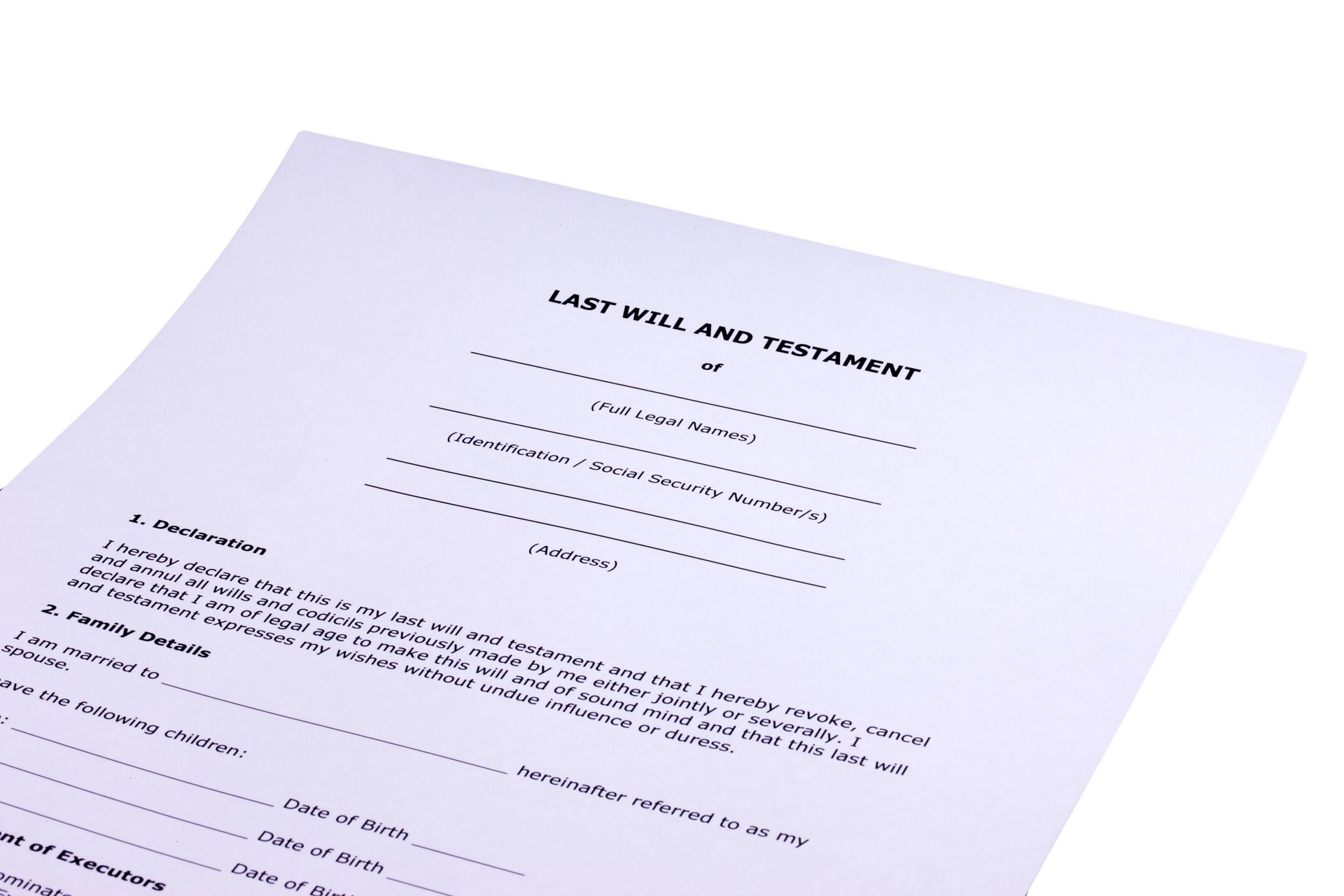Understanding Essential Legal Documents in Estate Planning

Estate planning ensures your assets are distributed according to your wishes after you pass on. To effectively plan for the future, it is important to understand the various legal documents that are typically included in estate planning. In this article, we will explore the key documents such as a last will and testament, living trust, power of attorney, and designation of beneficiaries.
Last Will and Testament
A last will and testament is a crucial legal document that outlines how you want your assets to be distributed upon your death. In this document, you can specify your wishes in detail, ensuring that your estate is handled according to your preferences. It allows you to designate beneficiaries for specific assets, such as property, investments, or personal belongings, ensuring that treasured possessions go to the people you choose. Additionally, you can appoint guardians for minor children, providing peace of mind that they will be cared for by someone you trust. Moreover, you can name an executor to handle the administration of your estate, ensuring that your instructions are accurately followed. If you have no will in place, state laws will step in and determine how your assets are distributed. The state's distribution of your assets may not align with your wishes, so leaving a will is important if you have specific goals for your wealth.
Living Trust
A living trust is another essential document in estate planning that allows you to transfer ownership of your assets into the trust during your lifetime. This enables your assets to bypass probate, which can save time and money for your beneficiaries. By avoiding the lengthy and often costly probate process, your loved ones can gain quicker access to your estate. Additionally, a living trust provides privacy, as opposed to a will, which becomes public record after probate, ensuring your financial matters remain confidential. Moreover, a living trust can include specific instructions for how you wish your assets to be managed and distributed, offering greater control and flexibility over your estate even after your passing.
Power of Attorney
A power of attorney is a legal document that designates one person to make financial or healthcare decisions for you if you become incapacitated. It ensures that your preferences and interests are upheld even when you cannot communicate them yourself. There are two main types of power of attorney: one for financial matters, which includes managing your bank accounts, investments, and properties, and another for healthcare decisions, which encompasses medical treatments, living arrangements, and end-of-life care. It is important to choose someone you trust deeply and who understands your values and wishes to act in your best interests.
Designation of Beneficiaries
Designating beneficiaries on accounts such as retirement funds, life insurance policies, and bank accounts is crucial in estate planning. By naming beneficiaries directly on these accounts, the assets can be passed directly to them without going through probate. This legal process can be lengthy and costly, often delaying the distribution of assets for months or even years. Naming beneficiaries helps streamline this process, ensuring that assets go to the intended recipients efficiently and without unnecessary legal hurdles. Additionally, it provides peace of mind that your loved ones will receive their inheritance promptly and according to your wishes. This simple step can significantly ease the administrative burden on your family during a challenging time.
Benefits of Estate Planning
Estate planning offers numerous benefits that can provide peace of mind for you and your loved ones. It helps ensure that your assets are distributed according to your wishes, which can prevent potential conflicts among family members. Additionally, estate planning can minimize the tax burden on your heirs, preserving more of your wealth for future generations. With a clear plan in place, you can also provide for the care of minor children and dependents, which is especially important if you have specific wishes for their upbringing.
Why You Should Work with a Legal Professional
Working with a legal professional in estate planning is highly recommended to ensure that all your documents are correctly drafted and legally binding. An experienced attorney can provide valuable guidance tailored to your situation, helping you navigate complex laws and regulations. They can assist in creating a comprehensive estate plan that addresses all potential issues, including probate avoidance and tax minimization strategies. By collaborating with a legal expert, you can have confidence that your estate plan will stand up to legal scrutiny and effectively protect your legacy.
Estate planning is an essential process that ensures your assets are managed and distributed according to your wishes, providing peace of mind for you and your loved ones. By understanding and utilizing key documents such as the last will and testament, living trust, power of attorney, and beneficiary designations, you can create a comprehensive plan that addresses your unique needs. Additionally, working with a legal professional can help navigate the complexities of estate planning, ensuring that your plan is thorough and legally sound. Taking these steps now can prevent future conflicts, minimize taxes, and ensure that your legacy is preserved for the benefit of future generations.
For more information about this, contact us.










